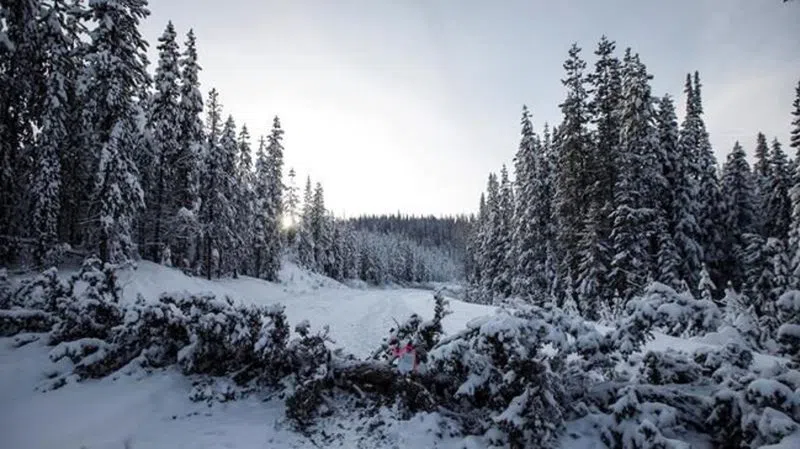
First Nation waits on logging road at centre of pipeline dispute in northern B.C.
SMITHERS, B.C. — Thirty-nine kilometres down a snow covered logging road, four men chop wood and work to erect a canvas wall tent in a pullout area.
Cody Merriman, who is ‘Namgis and also goes by the name Mona’gila, says that as supporters of the Wet’suwet’en hereditary chiefs, they are there to ensure an eviction notice issued by the chiefs to Coastal GasLink over a pipeline it is building is respected.
“They made a decision and we’re here to support them in that, to make sure Wet’suwet’en law is enacted and respected,” he said.
They’re also eyes on the ground in case the RCMP begin moving into the area to enforce an injunction granted to Coastal GasLink against the pipeline opponents, he said.
